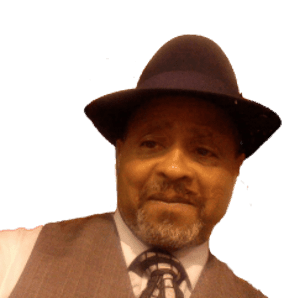Katherine Lee Bates penned the words to ‘America, the Beautiful,’ one of the best-known songs in American history, in 1893. The Nation was still deep in its transformation from an agricultural society to the most dynamic economic engine in the world. Immigrants from Europe were flooding the country, where they were readily accepted, and soon actively involved in American Brotherhood and in living “the American Dream.”
In an essay written around 1925, Bates said her inspiration for writing “America the Beautiful,” was a trip she took to Colorado Springs, and “the sea-like expanse of fertile country,” she looked out upon.
The overwhelming success of the poem, Bates said, was “clearly due to the fact that Americans are at heart idealists, with a fundamental faith in human brotherhood.”
What a difference 123 years can make.
I, too, have faith in the ultimate overcoming of good, and right and decency. But mine is an idealism tempered by pragmatic realism– a possible contradiction I have learned to live with. America may have been beautiful to Bates and those of her ilk, but for many of its people, blacks and Native Americans in particular, it more closely resembled a living hell.
No one can afford to mistake living in the past as an educational exercise. Now, more than ever, we need a clear focus on what lies ahead. It is important to remember the process by which we moved from Reconstruction to deconstruction, from full enfranchisement to complete disenfranchisement, to make sure we do not go that way again.
When the nation’s honeymoon with black political power ended in 1877– the result of a political compromise that left blacks without federal protection in the South– the notion of human brotherhood also ended as well. More specific groupings of “brotherhoods” formed, and blacks were literally left at the mercy of the majority voting bloc.
The poll taxes, literacy tests and Grandfather clauses used back then have given way over time to more sophisticated means of suppressing the black vote. From 1877 to 1950, hate rushed back to the place of public acceptance. Over 4,000 blacks were lynched and burned across the southern states– many over well-attended picnic events– with a number of those happening here in Florida.
From 1950 to 2008, America made great strides to overcome its internal incongruities, and to find within itself a new voice, and a new moral compass. The election of Barack Obama signaled, if nothing else, that the nation was tired of prejudice and racial hatred, and ready to embark upon a new chapter, if not a new treatise redefining a better tomorrow.
Trump’s victory was shocking for many both inside America and abroad because as a nation we embraced the worst of what he said and did. We sent a message to the world that we want what he wants, and that we believe as he believes. We said that no matter how he treats other people, no matter whether he tells the truth or lies, no matter how divisive he is, he represents the type and calibre of leader we want for our country. Perhaps more than a few of us see nothing wrong with the unethical business practice of hiring workers and not paying them.
For some, his message as leader of this nation will be the clarion call to a return to the days of socially, morally and even politically unacceptable behavior.
Maybe we lost our sense of common purpose when Obama was elected. But not once did he give up on the ideals espoused by our nation: “Give me your tired, your poor, Your huddled masses yearning to breathe free, The wretched refuse of your teeming shore. Send these, the homeless, tempest-tossed, to me.”
Vilifying Trump for being Trump is to my way of thinking disingenuous. The real culprits are those who are responsible for the climate in America that nurtured Trump into a viable presidential candidate. For that reason there is plenty of blame to pass around.
What he actually does during the next four years will be directly attributable to him– but the direction we now take, we take because millions of Americans decided upon a different path. Sadly, but all too predictably, it is not the path of brotherhood. You can see that in the intensified expression of “anti-ism” that is flooding the land; in the recent shoving of the black college student off the campus sidewalk, where her attacker responded to her question, Why did you do that?, by saying “I’m making America great again.”
The deep division that exists in America before the election took place has deepened. Social civility (political correctness?) just walked out of the building, along with love, peace and brotherhood– “from sea to shining sea.” Let’s turn it around.
Rev. Kevin Seraaj is the pastor of Cornerstone Missionary Baptist Church in Orlando.



